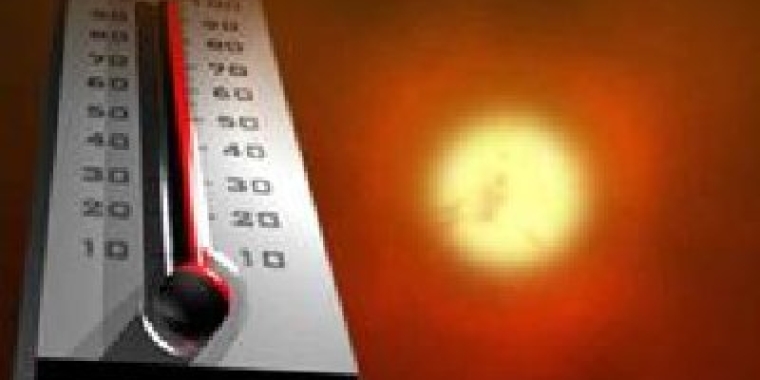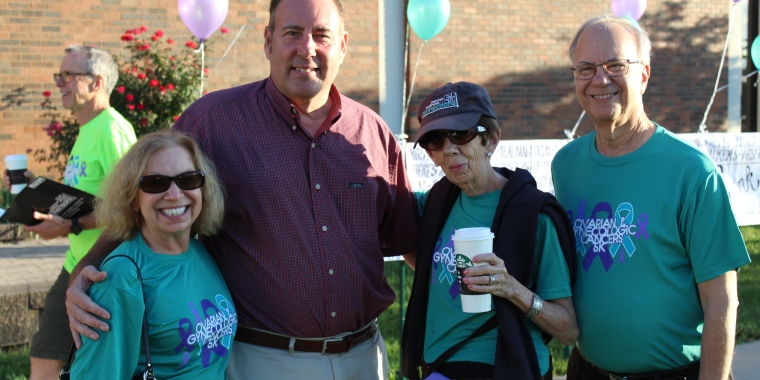
Extreme Heat Forecast Prompts Health Department Caution
Joseph E. Robach
July 6, 2010
-
ISSUE:
- Environment

Tuesday, July 6, 2010
With temperatures forecasted to be in the 90s over the next several days coupled with high humidity, Monroe County Executive Maggie Brooks and County Health Director Dr. Andrew Doniger are cautioning residents to be alert for symptoms of heat-related illness and to take common sense measures. Particularly at-risk from very hot weather are infants, young children and older people.
In response to the high temperatures, Ontario Beach Park will be open to swimmers for an extra hour today (7/6) and tomorrow (7/7) in order to accommodate guests looking to escape the heat. Beach hours for each day will be from 11AM-8PM. These hours have been updated on the beach information hot-line.
Prevention and common sense are the best defenses against heat-related illness.
Prevention tips include:
Drink Plenty of Fluids:
In extreme heat, consume 2-4 glasses of cool fluids each hour. Thirst is not a good indicator of the need for fluids. Avoid very cold beverages and those that contain caffeine and alcohol. Replace Salts and Minerals:
Fruit juice and sports drinks can replace valuable salt and minerals lost during sweating. Salt tablets are not recommended. Wear Loose Clothing and Sunscreen:
Lightweight, loose fitting clothing is best. A hat is also useful. Use a sunscreen with a SPF rating of 15 or higher. Pace Yourself:
If outdoors in hot weather, take it easy. When exerting yourself, if you begin gasping for breath, immediately STOP all activity and get into a cool area and rest. Stay Cool Indoors:
When possible, seek out air-conditioned locations such as malls and libraries. Even a short time in cooler locations will lower the body temperature. A cool shower or bath is also effective at lowering body temperature.
-more-
Plan Outdoor Activity:
When possible, try and do outdoor work before noon and in the evening. If not practical, take frequent breaks in the shade and consume fluids. Use the Buddy System:
Check in frequently with co-workers when working in very hot weather to determine if they are feeling alright. Similarly, check in often with older neighbors, particularly if they live alone. Monitor High-Risk Groups:
Infants and children under 5, people 65 and over, people who are overweight, people with a chronic illness, and people overexerting during work or exercise. Adjust to Environment:
Sudden heat waves are stressful to the body. Slowly acclimate yourself to dramatic changes in temperature. Use Common Sense:
Avoid hot foods and heavy meals. Do not leave children or pets in a parked car, even for a short time. Dress appropriately. Limit sun exposure. Drink plenty of fluids. Delay exercise until the cooler part of day.
Heat-related illness
While there are a number of heat-related illnesses, heat stroke and heat exhaustion are the most serious.
Heat Stroke:
- Heat stroke is a medical emergency and results when the body temperature rises rapidly to 103 degrees or higher. Warning signs include: high body temperature, red, hot and dry skin, rapid pulse, throbbing headache, dizziness, nausea, confusion, and loss of consciousness. If heat stroke is suspected, 911 should be called immediately as it is often life threatening. While waiting for assistance: get person to a shady area, cool the person with whatever means available, including spraying with water, immersing in a tub of cool water, wrapping person in a wet sheet, or fanning.
Heat Exhaustion:
- Heat exhaustion is the body’s response to loss of water and salt. Warning signs include: heavy sweating, paleness, cramps, fatigue, weakness, dizziness, headache, nausea and vomiting. The skin may feel cool and moist. If symptoms are severe and last more than an hour, call 911. Cooling measures include: consumption of cool fluids, rest, cool shower or bath, and wearing light clothing.
##
Share this Article or Press Release
Newsroom
Go to NewsroomSenator Robach 11th Annual Women's Wellness Fair
October 16, 2018

Town of Gates First Responders Day
September 20, 2018

Ovarian & Gynecologic Cancers 5k
September 19, 2018

